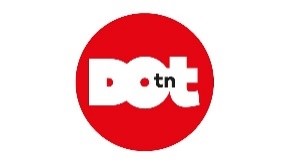The Dot, a new digital innovation hub in Tunisia
The Dot was opened in the presence of the Tunisian Head of Government. It is an innovative project that aims to bring together the ecosystem of innovation and entrepreneurship in Tunisia and in the region, and very rapidly become a national and international showcase to bring about new Tunisian success stories. “This project opens up new sustainable prospects for the development of the digital economy and ecosystem of start-ups in Tunisia”, says Clara Guilhem, manager of the Innov’i – EU4Innovation project for Expertise France.
A catalyst for Tunisia’s entrepreneurial ecosystem
 This new hub has come about through a convergence of objectives between public and private stakeholders and aims to be a space for exchanges, sharing and coworking, gathering technological players, digital operators, start-ups and public stakeholders in the same place. “The Dot is the result of a successful public-private partnership between the Tunisian Ministry of Technologies and Communication and Tunisian civil society, as well as close cooperation between Expertise France, GIZ and the Tunisian Development Foundation”, says Clara Guilhem.
This new hub has come about through a convergence of objectives between public and private stakeholders and aims to be a space for exchanges, sharing and coworking, gathering technological players, digital operators, start-ups and public stakeholders in the same place. “The Dot is the result of a successful public-private partnership between the Tunisian Ministry of Technologies and Communication and Tunisian civil society, as well as close cooperation between Expertise France, GIZ and the Tunisian Development Foundation”, says Clara Guilhem.
For further reading: Innov’i – EU4Innovation: a project to boost innovative entrepreneurship in Tunisia
The Dot also houses start-ups from various regions in the country, as well as stakeholders in the entrepreneurial ecosystem that offer services to established start-ups and young entrepreneurs seeking to turn their ideas into reality (incubators, accelerators, association of start-uppers, etc.).
Helping to bring projects into being
For the first time in Tunisia, project initiators and entrepreneurs have access to appropriate and innovative services in the same place, which will allow them to build their skills and bring their projects into being.
For further reading: From SLEIDSE to Raqam-E, Expertise France is continuing to support entrepreneurship in Libya
In addition to providing working and meeting spaces, this fully equipped centre with a surface area of 2,900 m² offers several activities:
• A corner for expert services to assist entrepreneurs and give them the advice they need for their development;
• A business facility desk to support partnerships between companies and investments;
• Creative spaces for events and training, as well as a podcast studio and webinar;
• A hub dedicated to the 4.0 industry to help companies set up digital solutions;
• A public innovation laboratory working for concrete digitalisation projects with public institutions.
 Find out more about Innov'i – EU4Innovation
Find out more about Innov'i – EU4Innovation
